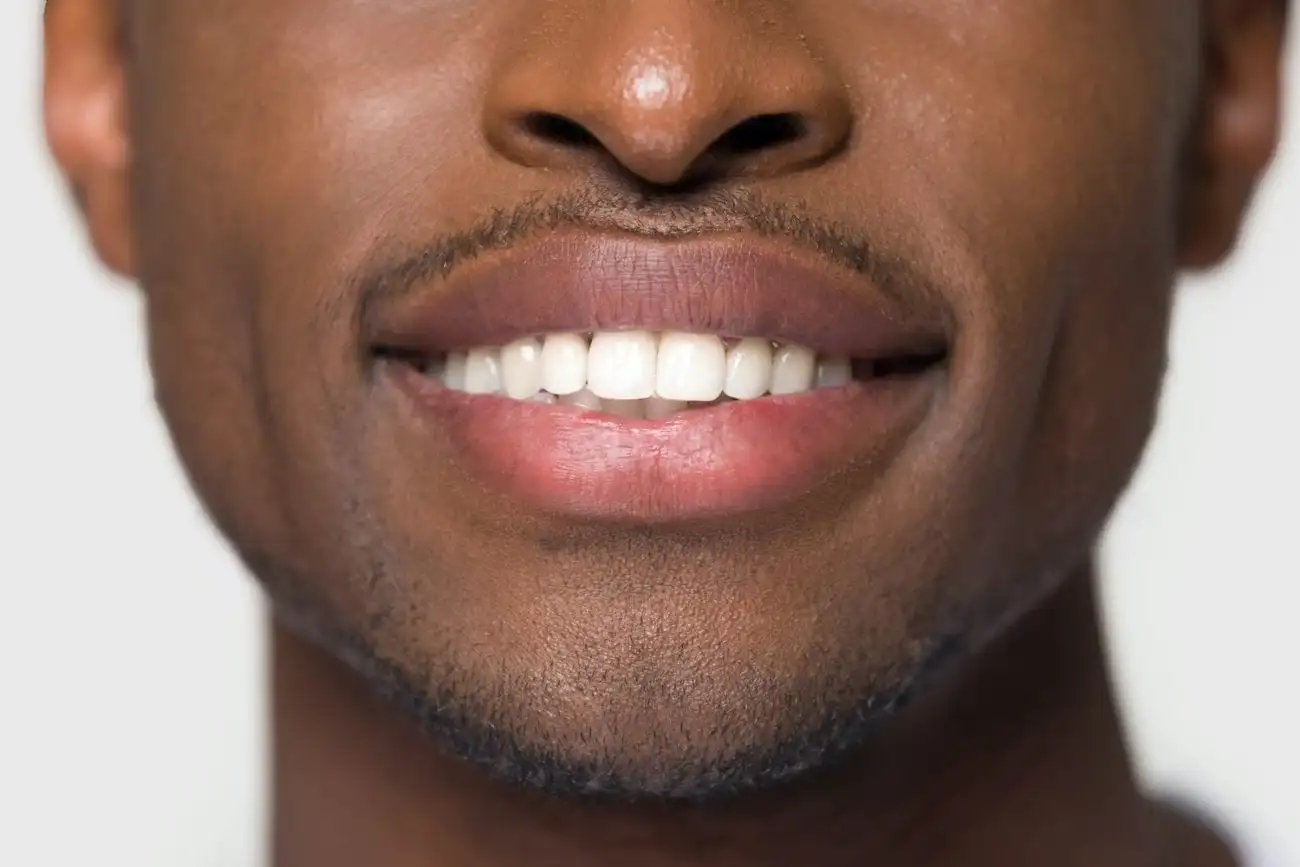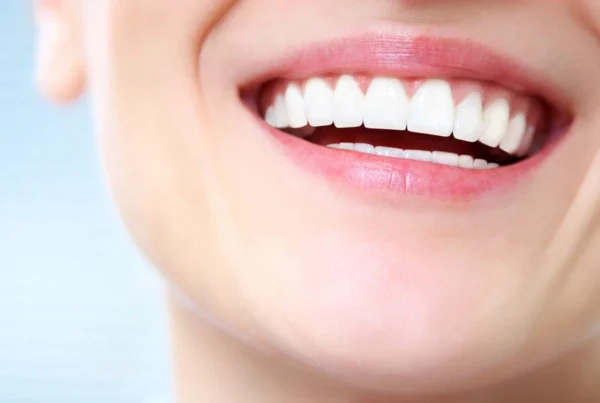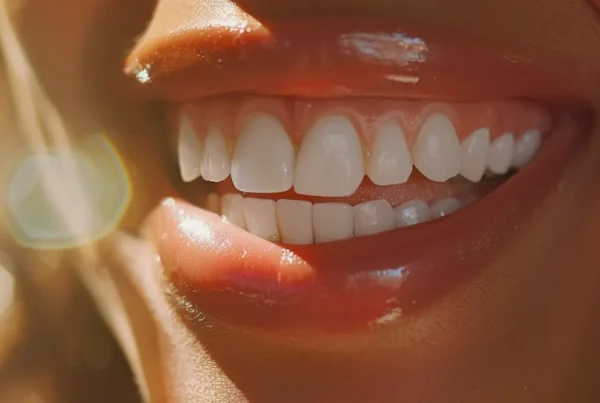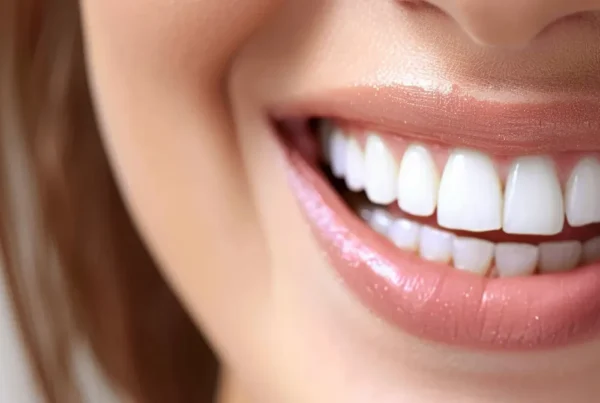Natural teeth whitening has become really popular lately because many people want to use products that seem healthier and better for the environment. You might have seen videos on social media showing people using things like activated charcoal or rubbing lemon juice on their teeth to make them whiter. While it’s wonderful that people care about using natural products, it’s important to understand that just because something is natural doesn’t automatically mean it’s safe for your teeth.
Dr. Bethaney Brenner in Burlington, Connecticut has over 40 years of experience helping patients understand the difference between natural methods that can help their teeth and ones that might actually cause damage. As a graduate of the University of Connecticut School of Dental Medicine and a recognized holistic health practitioner, she understands both the appeal of natural remedies and the importance of protecting your dental health. Her extensive training allows her to guide patients toward natural options that work well with professional dental care.
The truth is that some natural whitening methods can be helpful when used correctly, while others can actually harm your teeth even though they seem harmless. Understanding which natural methods are safe and effective helps you make smart choices about your dental care. Dr. Brenner’s recognition as one of Connecticut’s Top Dentists comes from her ability to combine the best of natural approaches with proven dental science to give patients the safest and most effective care possible.
Why Natural Whitening Became So Popular
Social media has made natural teeth whitening methods much more popular by showing videos of people trying different home remedies that seem to work instantly. Platforms like Instagram and YouTube are full of influencers showing themselves using activated charcoal, baking soda, or fruit peels to whiten their teeth, making these methods look easy and safe. However, what these videos often don’t show is what happens to people’s teeth after using these methods for weeks or months.
The trend toward natural products is part of a bigger movement where people want to use fewer chemicals in their daily lives and choose things that seem more environmentally friendly. This is generally a positive trend that encourages people to think more carefully about what they put in and on their bodies, including their mouths.
Unfortunately, the popularity of these methods on social media doesn’t mean they’ve been tested by dental professionals or proven to be safe for long-term use. Many people assume that if something is natural and widely shared online, it must be harmless, but this isn’t always true when it comes to dental care.
Understanding the Risks of Popular Natural Methods
Just because something comes from nature doesn’t mean it’s automatically safe for your teeth, and some of the most popular natural whitening methods can actually cause serious damage to your tooth enamel. Understanding these risks helps you make informed decisions about which natural methods might be worth trying and which ones to avoid completely. Dr. Brenner’s holistic health training helps her understand both the benefits and risks of natural approaches to dental care.
Activated charcoal has become extremely popular for teeth whitening because it can remove some surface stains, but its rough texture can also scrape away the protective enamel on your teeth. Once enamel is worn away, it doesn’t grow back, and your teeth become more likely to get cavities, become sensitive, and actually look more yellow because the layer underneath enamel is naturally yellowish.
Lemon juice and other citrus fruits are often recommended for whitening teeth naturally, but their high acid content can seriously damage tooth enamel even faster than sugary drinks. The acid in citrus fruits softens enamel temporarily, making it easier to brush away, which might make teeth look whiter at first but causes permanent damage that leads to sensitivity and decay.
Baking soda is one of the safer natural whitening options because it’s mildly abrasive without being too harsh, but even baking soda can cause problems if used too often or scrubbed too hard. Here are some risks to be aware of with popular natural whitening methods:
- Activated charcoal can scrape away protective tooth enamel permanently
- Citrus fruits contain acids that weaken enamel and increase cavity risk
- Apple cider vinegar is extremely acidic and can cause severe enamel damage
- Abrasive substances used too frequently can make teeth sensitive and prone to decay
Dr. Brenner’s extensive experience and board certification help her identify which natural methods might be appropriate for individual patients and how to use them safely without causing damage.
Setting Realistic Expectations for Natural Methods
Natural whitening methods can provide some improvement in tooth color, but it’s important to understand that they work very differently than professional whitening treatments and usually produce much more subtle results. Having realistic expectations helps you decide whether natural methods alone will give you the results you want or if you need professional treatment to achieve your whitening goals. Dr. Brenner’s 40+ years of experience help patients understand what different whitening approaches can and cannot accomplish.
Baking soda, which is one of the safest natural whitening options, can help remove surface stains from things like coffee or tea, but it won’t change the natural color of your teeth or remove deep stains that have built up over years. Think of it like using a gentle scrub to clean a stained countertop, it can remove some of the surface dirt but won’t change the color of the countertop itself.
Most natural whitening methods work by removing surface stains rather than actually bleaching the teeth to a whiter shade, which means the results are usually much more limited than what you see in professional treatments. Natural methods might make your teeth look cleaner and brighter, but they typically won’t create the dramatic whitening that many people are hoping to achieve.
The Importance of Professional Guidance
Working with an experienced dentist like Dr. Brenner ensures that any natural whitening methods you choose to try are used safely and effectively as part of a comprehensive approach to dental care. Her training in both traditional dentistry and holistic health gives her unique insights into how natural remedies can complement professional dental treatment without causing harm. As Treasurer of the Connecticut State Dental Association Board of Governors, she stays current with the latest research on both natural and professional whitening methods.
Professional evaluation of your teeth helps determine which natural methods might be appropriate for your specific situation and which ones could cause problems based on the current condition of your enamel, existing dental work, or oral health issues. Some people have teeth that are more sensitive to acidic substances, while others might have enamel that’s already worn thin and can’t tolerate abrasive treatments.
Dr. Brenner can help you create a whitening plan that combines safe natural methods with professional treatments to achieve the best results while protecting your long-term dental health. This might include using gentle natural methods for maintenance between professional treatments or avoiding certain natural remedies that could interfere with dental work you’ve already had done.

Making Smart Choices About DIY Whitening
The lack of regulation in DIY and natural whitening products means that many of these methods haven’t been tested for safety or effectiveness, making it important to approach them with caution and professional guidance. Unlike professional whitening products that must meet safety standards and prove their effectiveness, natural remedies shared on social media often have no scientific backing or safety testing. Dr. Brenner’s extensive training helps her evaluate which natural methods have some scientific support and which ones are likely to cause more harm than good.
Homemade whitening mixtures can vary greatly in their ingredients and strength, leading to unpredictable results that range from ineffective to potentially harmful. What works safely for one person might cause serious problems for another depending on their individual dental health and how they prepare or use the mixture.
Combining Natural and Professional Approaches Safely
Dr. Brenner’s practice takes a balanced approach that respects patients’ interest in natural remedies while ensuring their dental health and safety remain the top priority. Her holistic health certification and decades of dental experience allow her to guide patients toward natural options that can complement professional care rather than replace it. This integrated approach often provides the best of both worlds, allowing patients to use gentler natural methods while still achieving excellent whitening results.
Patient education is a cornerstone of this approach, helping people understand how to use natural whitening methods correctly if they choose to try them, including proper frequencies, techniques, and warning signs to watch for that might indicate problems. Dr. Brenner’s teaching experience with dental students since 1980 has refined her ability to explain complex dental concepts in ways that patients can easily understand and apply.
Combining safe natural methods with professional treatments often produces better results than either approach alone while minimizing risks to dental health. For example, using baking soda occasionally for surface stain removal between professional whitening sessions can help maintain results without the risks associated with more aggressive natural methods.
Regular monitoring and professional cleanings ensure that any natural whitening methods being used aren’t causing damage to teeth or gums, allowing for early intervention if problems develop before they become serious or permanent.
Your Path to Safe, Effective Whitening
Understanding the realities of natural teeth whitening methods empowers you to make informed decisions that protect your dental health while still allowing you to explore gentler, more holistic approaches to dental care. The key is working with an experienced professional like Dr. Brenner who can guide you toward natural methods that are both safe and effective for your individual situation. Her recognition as one of America’s Best Dentists reflects her commitment to providing comprehensive care that respects patient preferences while prioritizing long-term oral health.
Natural whitening methods can be a valuable part of your overall dental care routine when chosen carefully and used appropriately, but they work best as complements to professional care rather than replacements for it. The combination of Dr. Brenner’s extensive experience, holistic health training, and commitment to patient education ensures that you receive guidance based on both scientific evidence and understanding of natural approaches to health and wellness.
The goal is not to discourage interest in natural methods but rather to ensure that your pursuit of a whiter smile doesn’t compromise the health and integrity of your teeth. With proper guidance, realistic expectations, and a balanced approach, you can explore natural whitening options safely while maintaining optimal oral health for years to come.
Book Your Consultation Today!
Dr. Bethaney B. Brenner DMD
8 Milford St, Burlington, CT 06013
Frequently Asked Questions
Are natural teeth whitening methods as effective as professional ones?
Natural teeth whitening methods can provide some improvement by removing surface stains, but they typically aren’t as effective or long-lasting as professional treatments. Methods like baking soda can help with maintenance, but for significant whitening results, professional treatments are usually more effective and predictable.
Is activated charcoal safe for teeth whitening?
While activated charcoal is popular for teeth whitening, its abrasive nature can damage tooth enamel over time, especially with frequent use. If you want to try charcoal products, it’s best to use them very occasionally and under professional guidance to minimize the risk of enamel wear.
Can I use lemon juice to naturally whiten my teeth?
Lemon juice and other citrus fruits are highly acidic and can seriously damage tooth enamel, leading to increased sensitivity, cavities, and actually making teeth appear more yellow over time. It’s much safer to avoid using citrus fruits for teeth whitening and choose less acidic natural alternatives.





